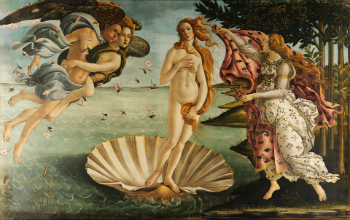In literary language, the verse represents each line of poetry, which together form the stanza.
Poetry is a type of lyrical text that uses resources, for example, musicality, rhythm and rhymes to give greater emphasis to the speech.
Stanza
The set of verses is called a stanza, and the number of verses can vary in each stanza. Thus, according to the number of verses that make up the stanzas, they are classified into:
- monastic: 1-verse stanza
- couplet: 2 verse stanza
- Triplet: 3-verse stanza
- Quartet or Block: 4 verse stanza
- Quintille: 5 verse stanza
- sextile: 6 verse stanza
- septile: seven-verse stanza
- eighth: 8-verse stanza
- ninth: 9 verse stanza
- From above: 10 verse stanza
- Irregulars: stanza with more than 10 verses
Difference between Poetry and Prose
THE poetry represents a type of lyrical text written generally in verse, which has meter, rhyme, and rhythm.
In turn, the prose it is a natural-style text, that is, it does not have meter and generally does not have rhymes or rhythm.
Although they differ in form, since poetry is made up of verses and prose is a running text, prose is divided into literary prose and non-literary prose.
Therefore, we can intuit that there are several literary texts in prose that present a certain lyricism, as in poetry, for example, novels, novels and chronicles that use figurative language (connotative) as the main expressive resource of literary language.
Verse Classification
The composition of the verses can follow a metric pattern, that is, present measures for each verse.
Thus, when the verses have equal measures, they are called isometrics. In turn, when they have different measures, they are classified into heterometric, for example, the free verses (irregular, without measurement).
Note that the syllables in the verses have a different metering from the grammatical syllables. In such a way, according to the number of poetic syllables that the verses have, they are classified into:
- Monosyllable: a poetic syllable
- disyllable: two poetic syllables
- Trisyllable: three poetic syllables
- Tetrasyllable: four poetic syllables
- pentasyllable or Small roundel: five poetic syllables
- hexasyllable: six poetic syllables
- heptasyllable or Bigger round: seven poetic syllables
- octosyllable: eight poetic syllables
- Eneasyllable: nine poetic syllables
- decasyllable: ten poetic syllables
- hendecasyllable: eleven poetic syllables
- dodecasyllable or Alexandrian: twelve poetic syllables
- Barbarian Verse: verse with more than twelve poetic syllables
Versification and Metrification
THE versification is a term that means the art of composing verses through resources such as rhyme, rhythm and meter.
In turn, the meterification points to the various measures of the verses as listed above.
Note that poetic or metric syllables are different from grammatical syllables, with “scansion” being the term called to indicate the counting of the sounds of the verses.
The counting of the syllables is done until the last stressed syllable of the verse, and, when there are two or more vowels, unstressed or stressed, at the end of one word and the beginning of another, they merge, forming a single syllable poetic. To better understand this difference, see the example below:
The / poet / ta is / a / fin / gi / pain - 7 literary syllables
The / po / e / ta / is / a / fin / gi / pain - 9 Grammatical Syllables
Fin/ ge/ so/ with/ ple/ ta/ mind/ te - 7 literary syllables
Fin/ ge/ so/ with/ ple/ ta/ mind/ te - 8 Grammatical Syllables
Examples of Verses
Below are two examples of verses: eneasyllables (example 1) and decasyllable verses (example 2):
Example 1
O warriors of the holy Taba,
O Warriors of the Tupi Tribe,
Gods speak in the corners of Piaga,
O Warriors, my songs have heard.Tonight - it was the moon already dead -
Anhangá prevented me from dreaming;
Here in the horrible cave, which I inhabit,
A hoarse voice started calling me.
(Excerpt from the poem “The Corner of Piaga” by Gonçalves Dias)
Example 2
“corner I
The weapons and barons assigned,
That of the western Lusitana beach,
By seas never before navigated,
They also went beyond Taprobana,
In dangers and strenuous wars,
More than human strength promised,
And among remote people they built
New Kingdom, which so sublimated;
(Excerpt from the work "The Lusiads” by Luís de Camões)


